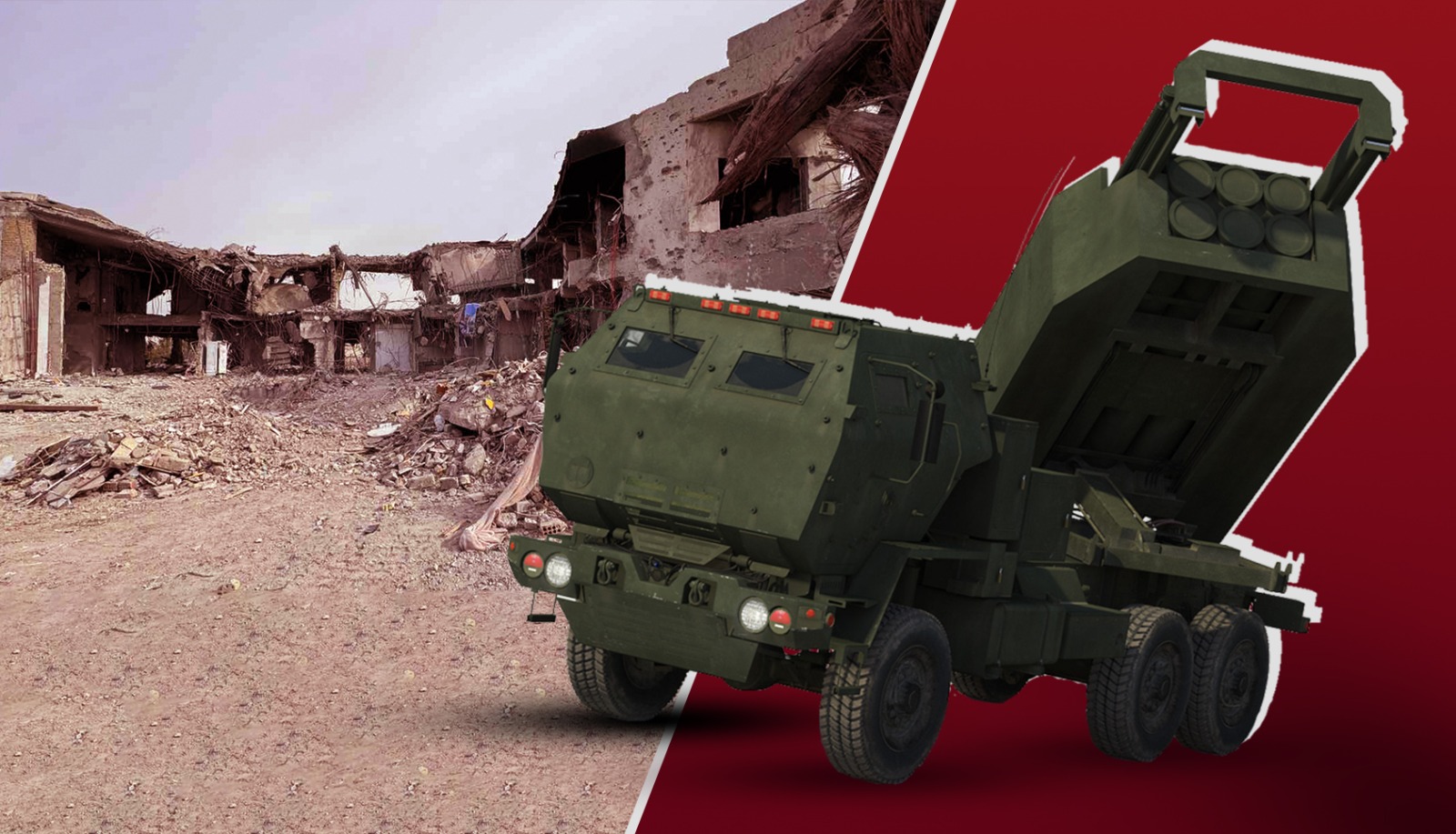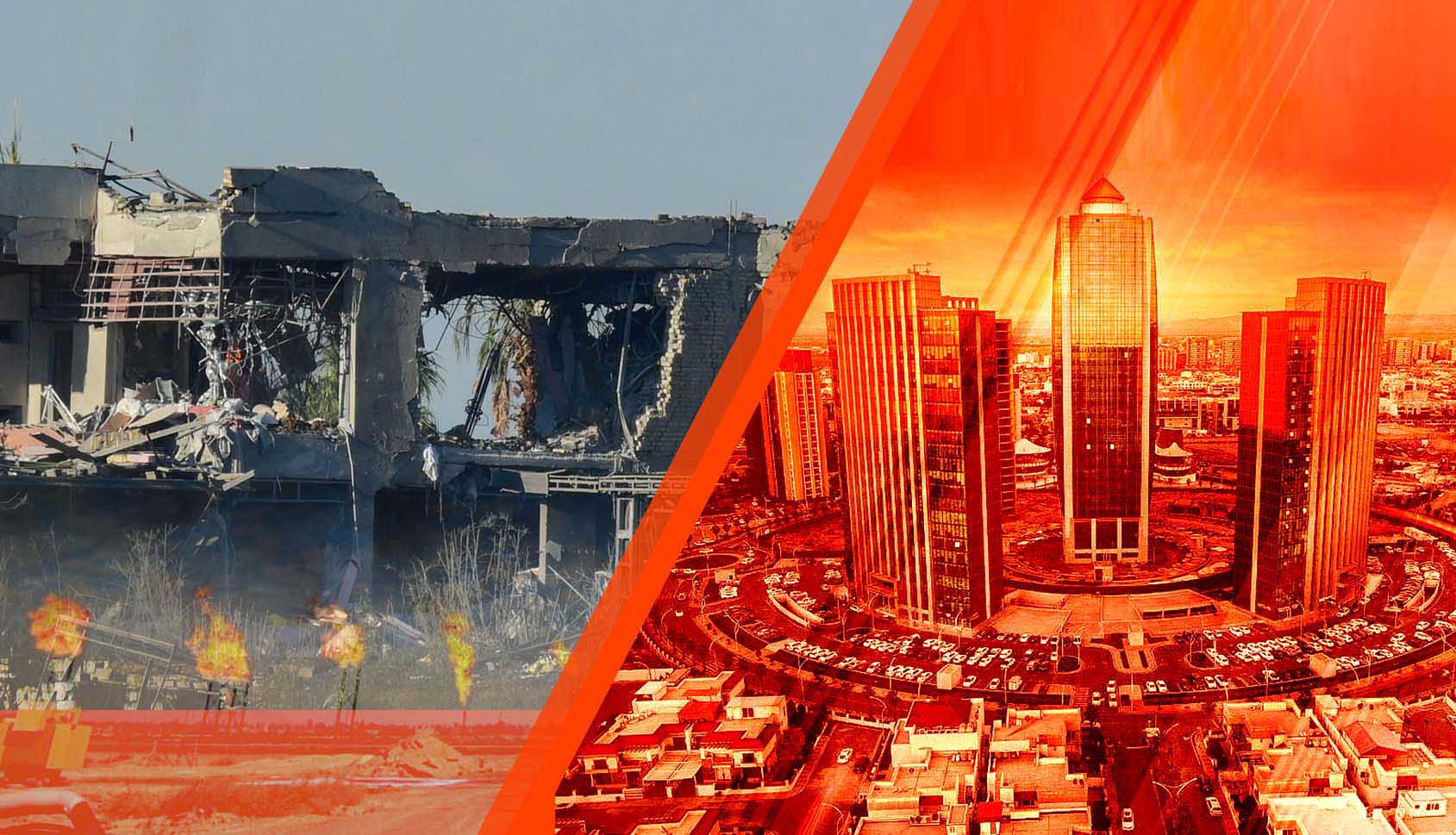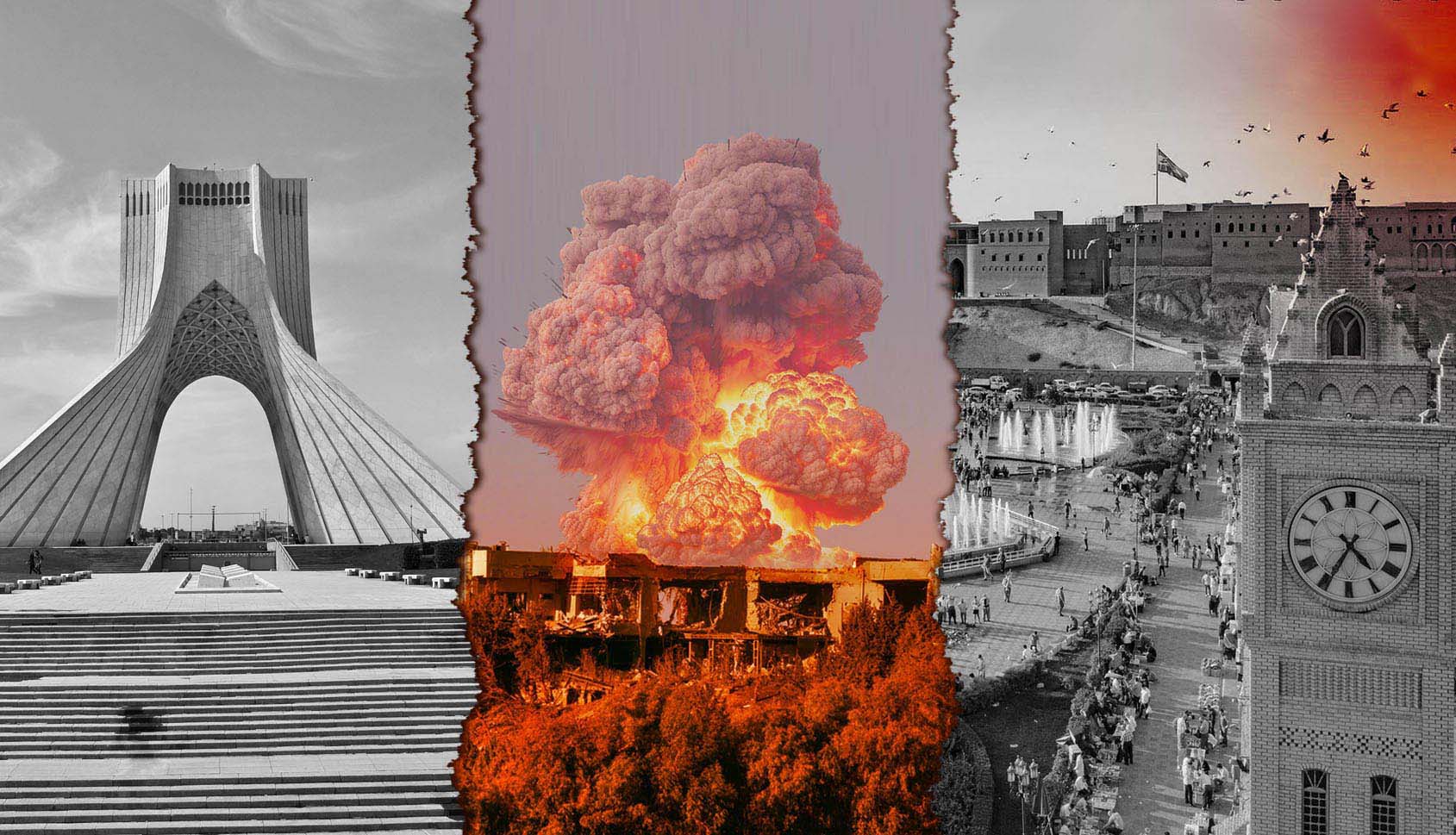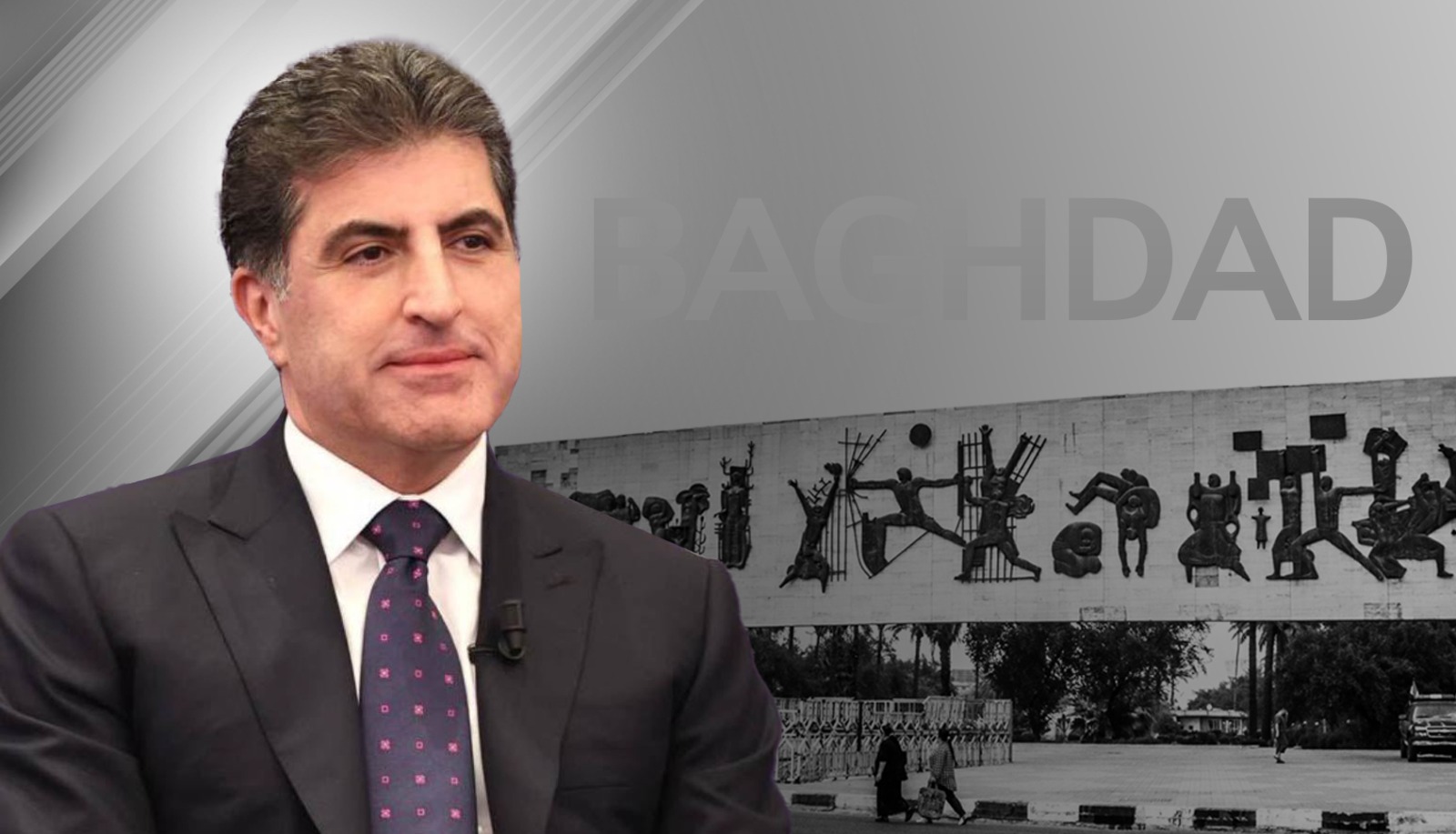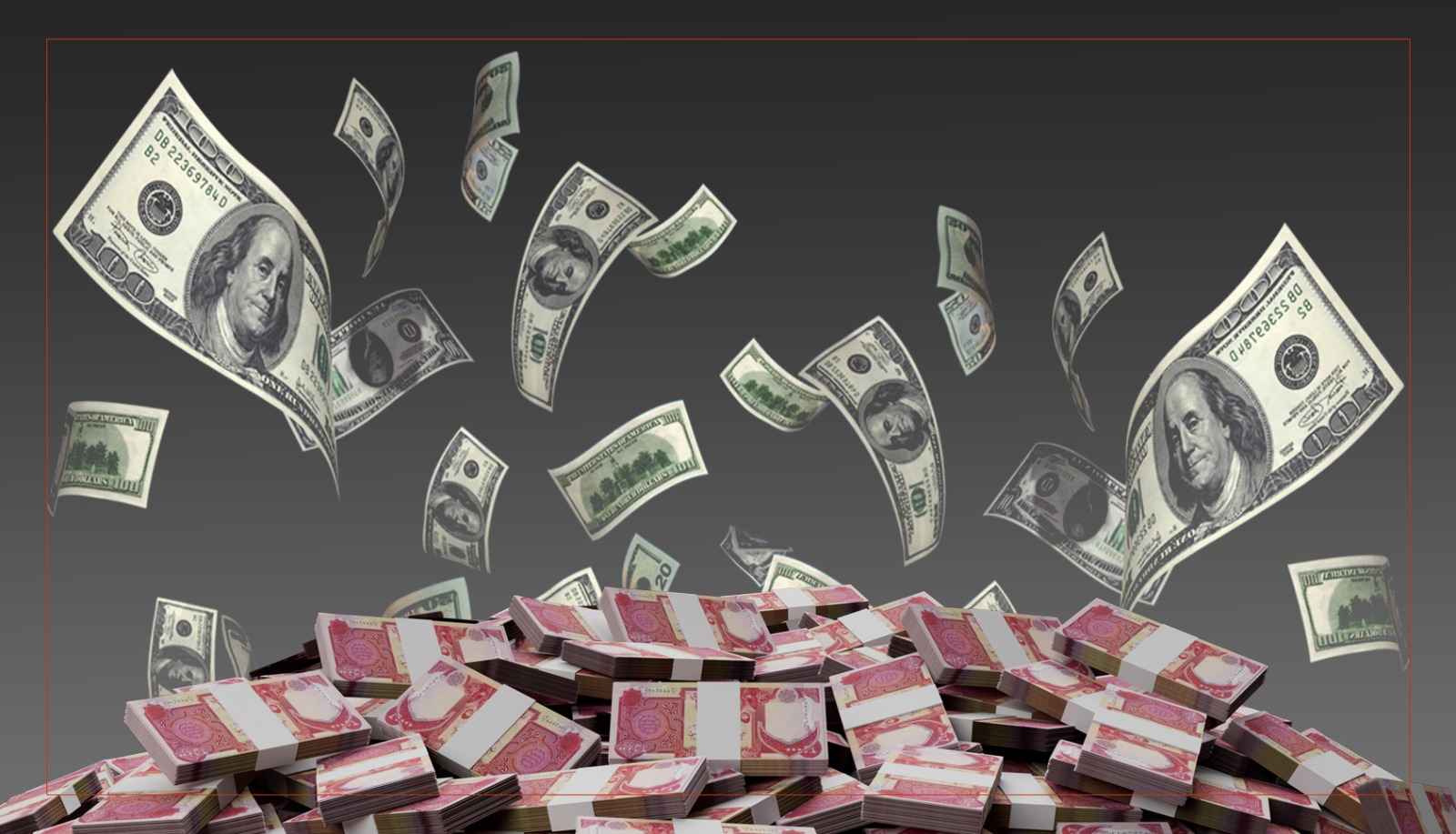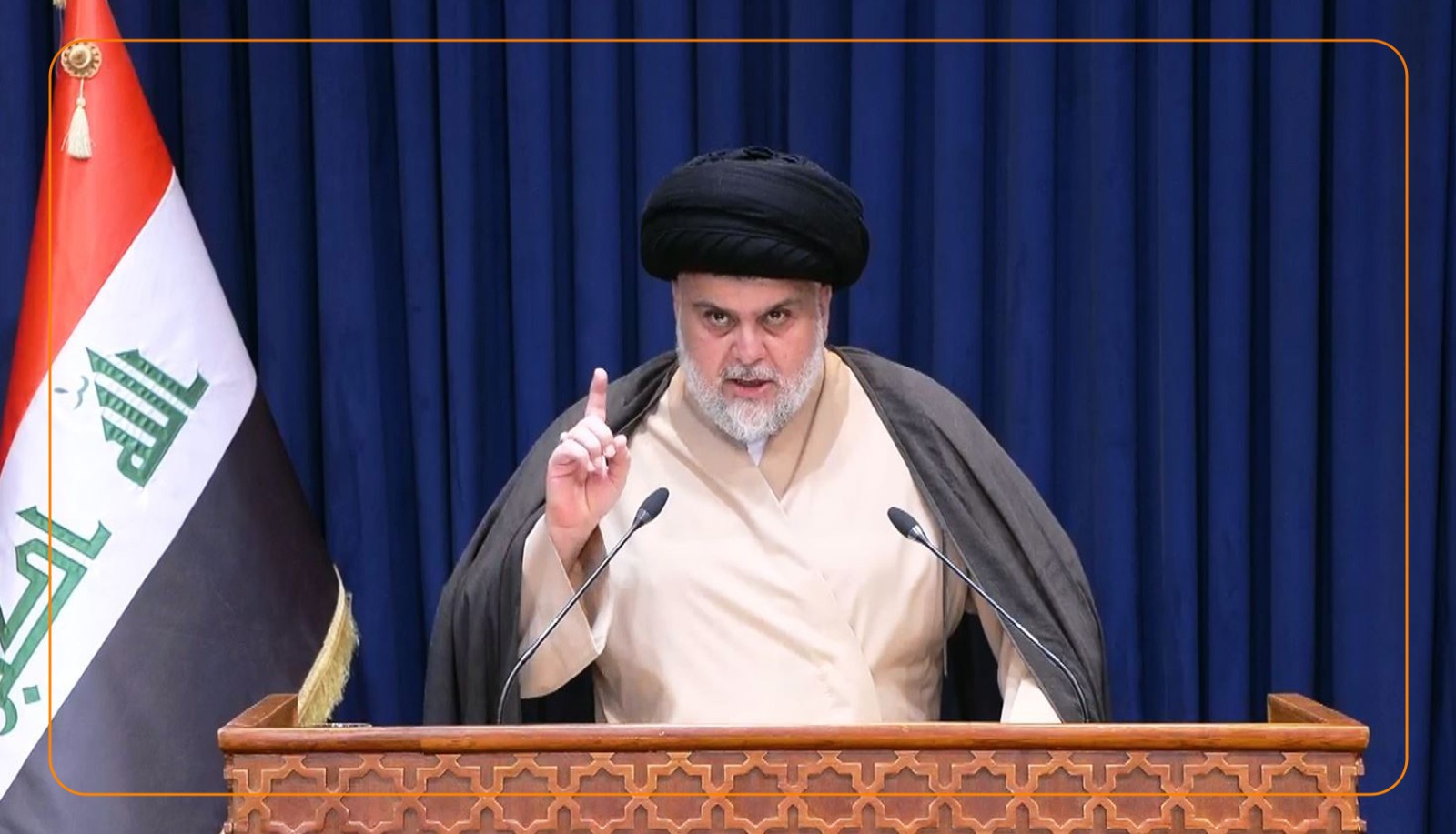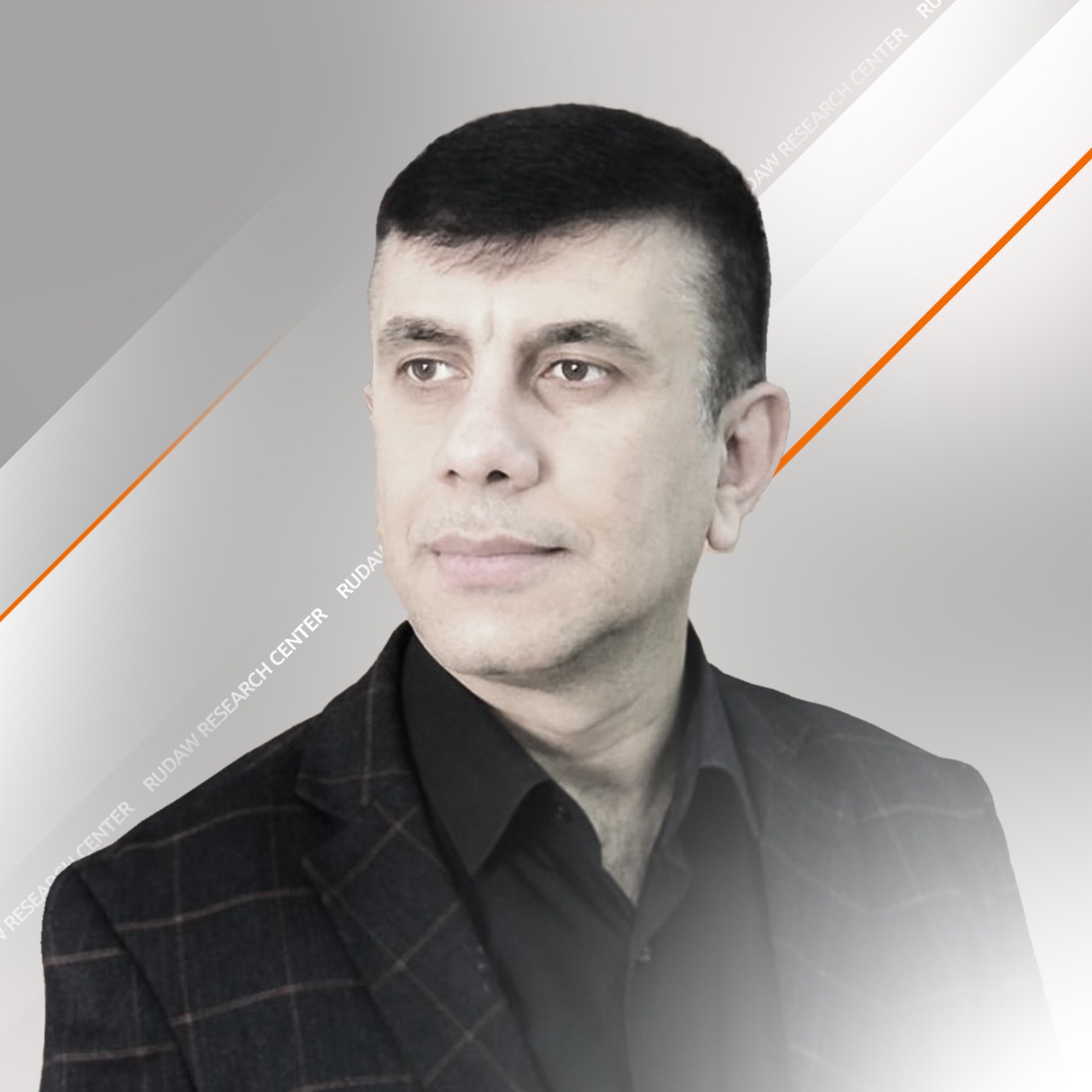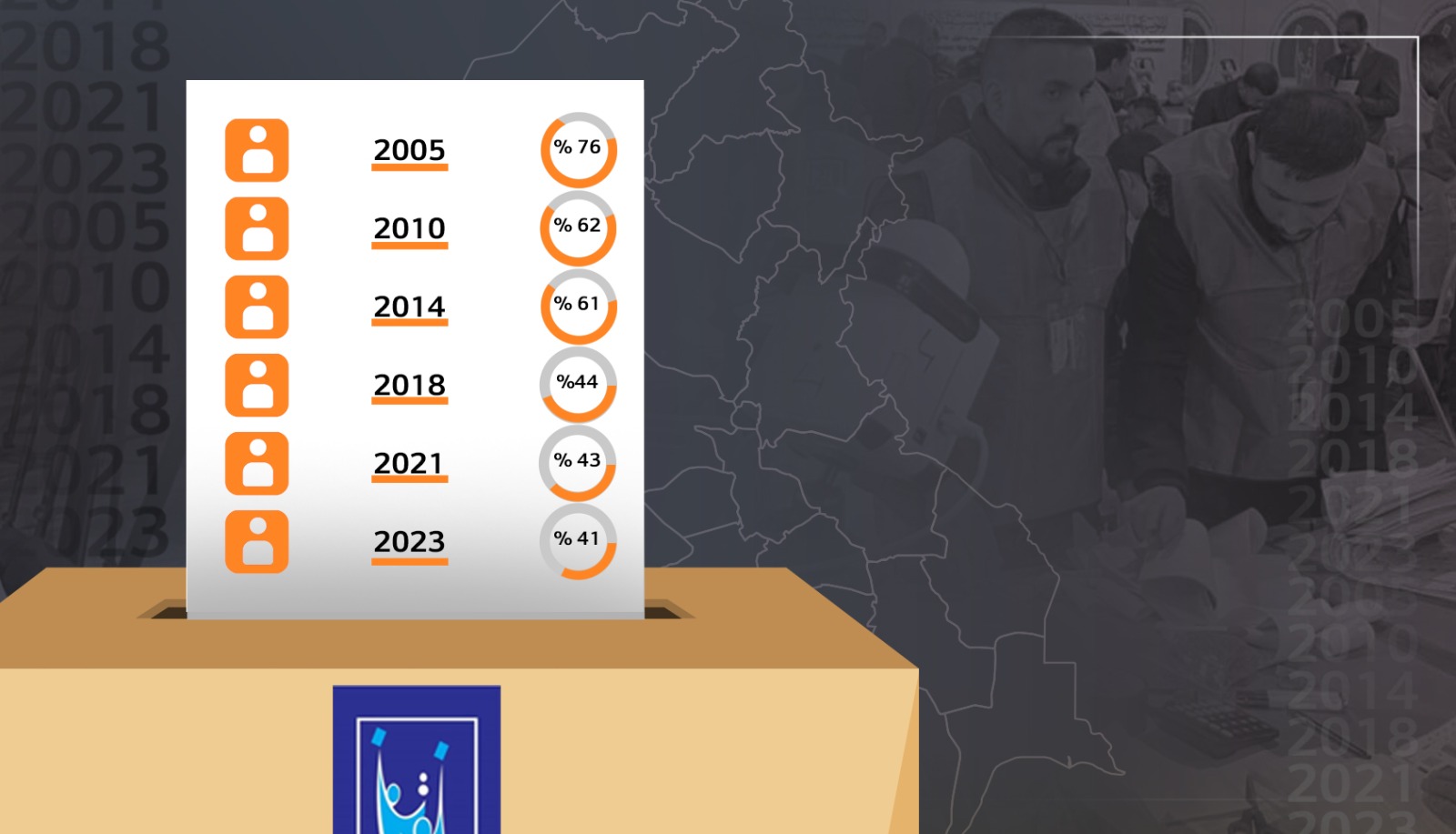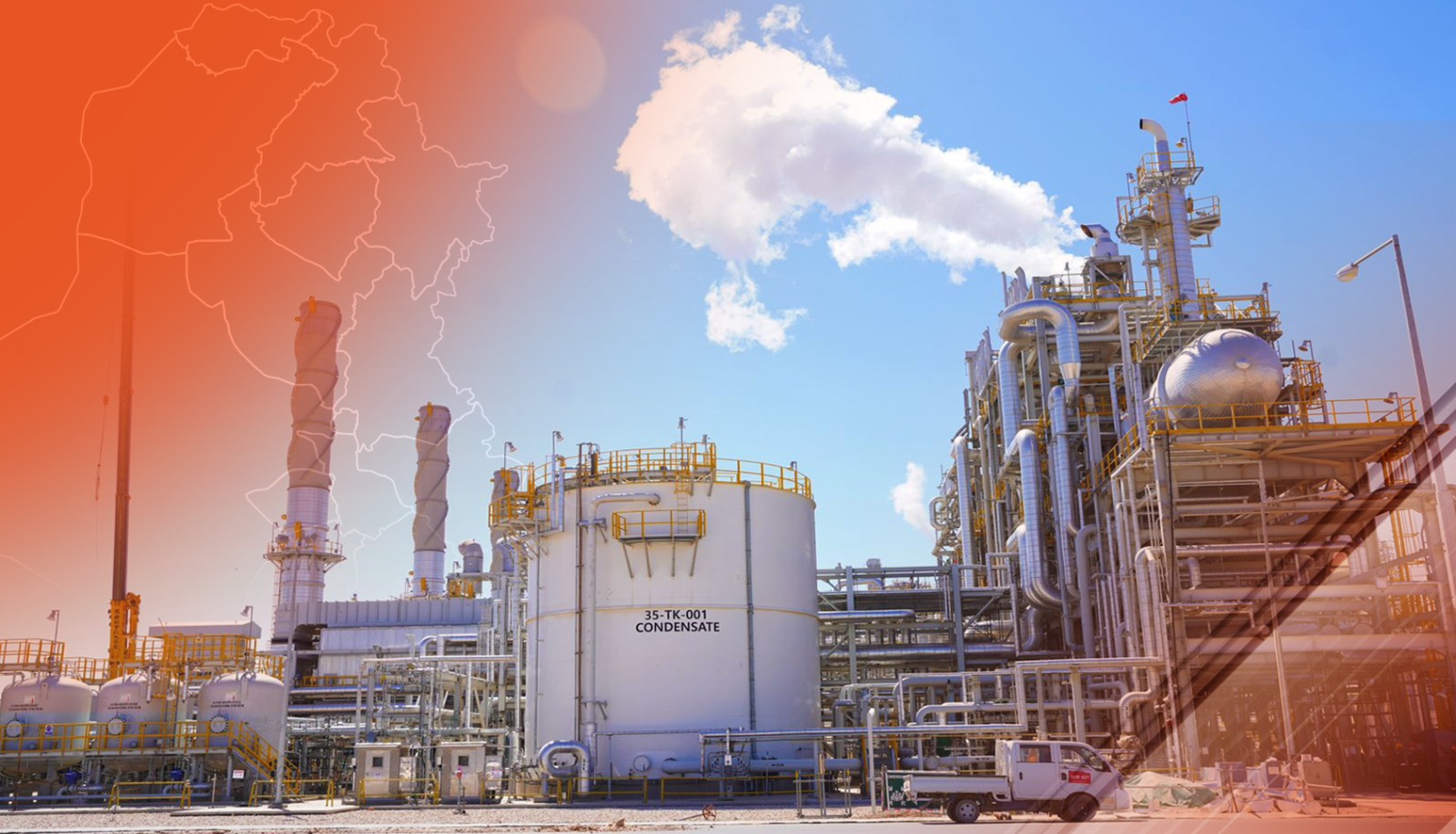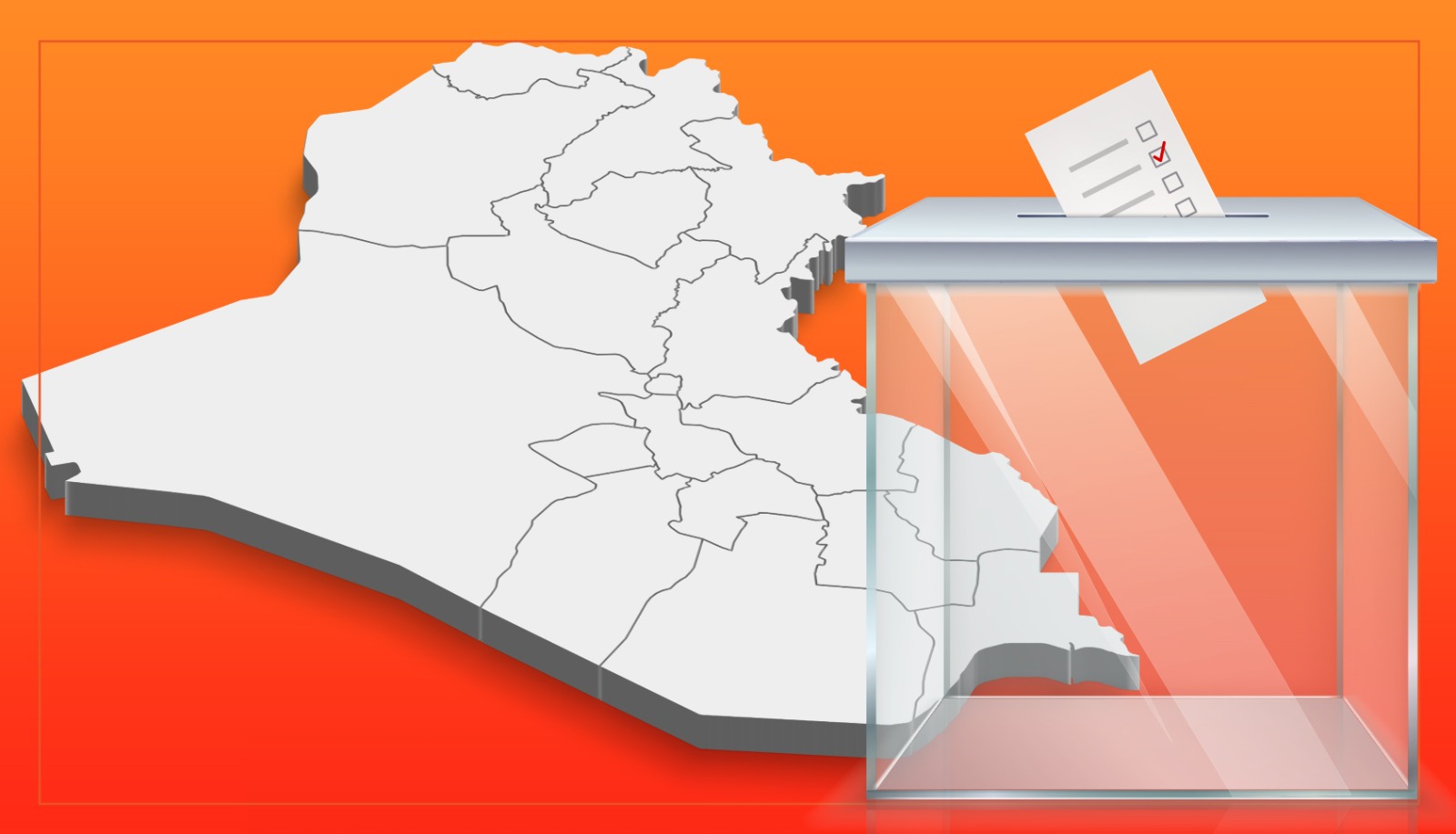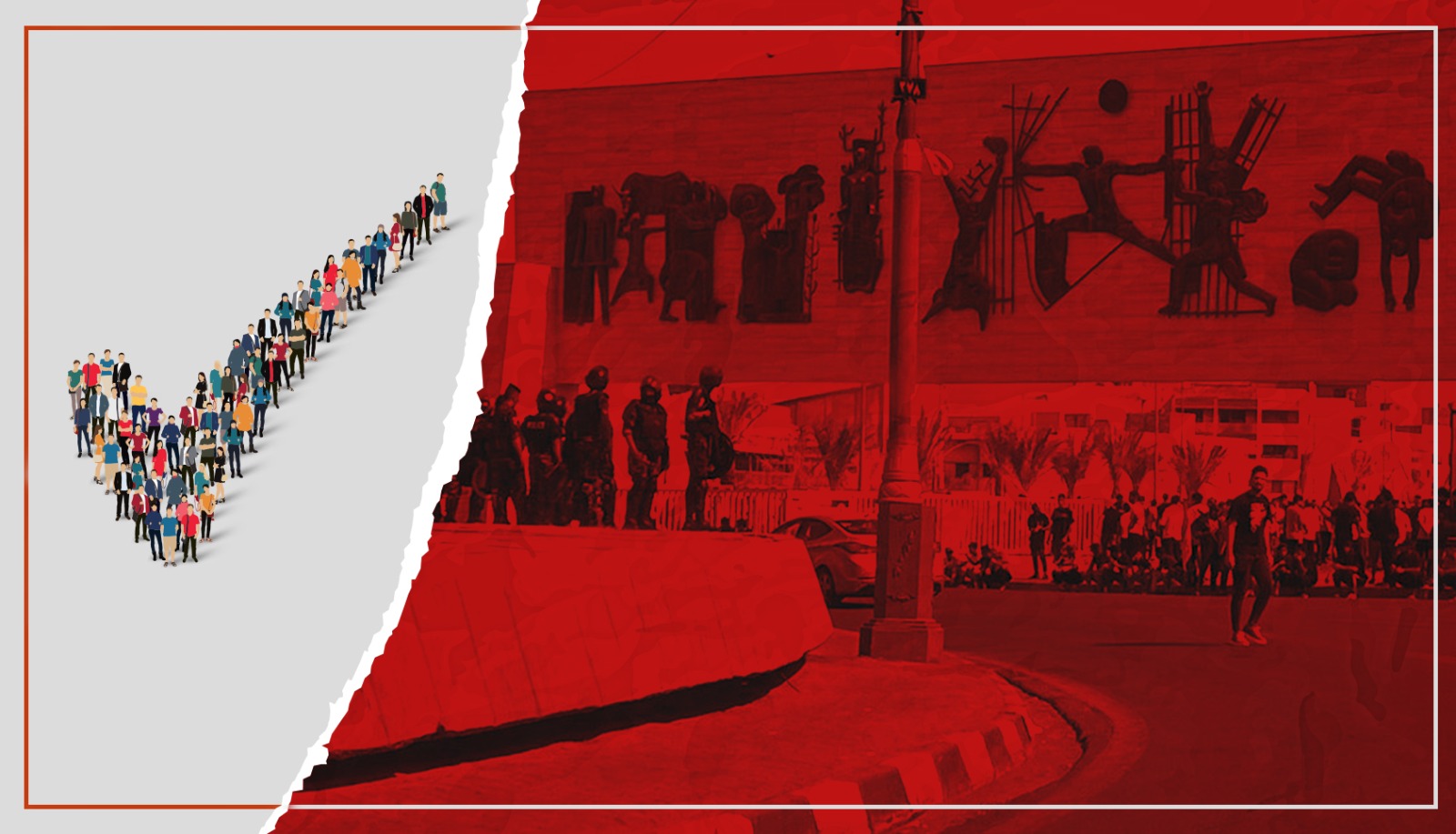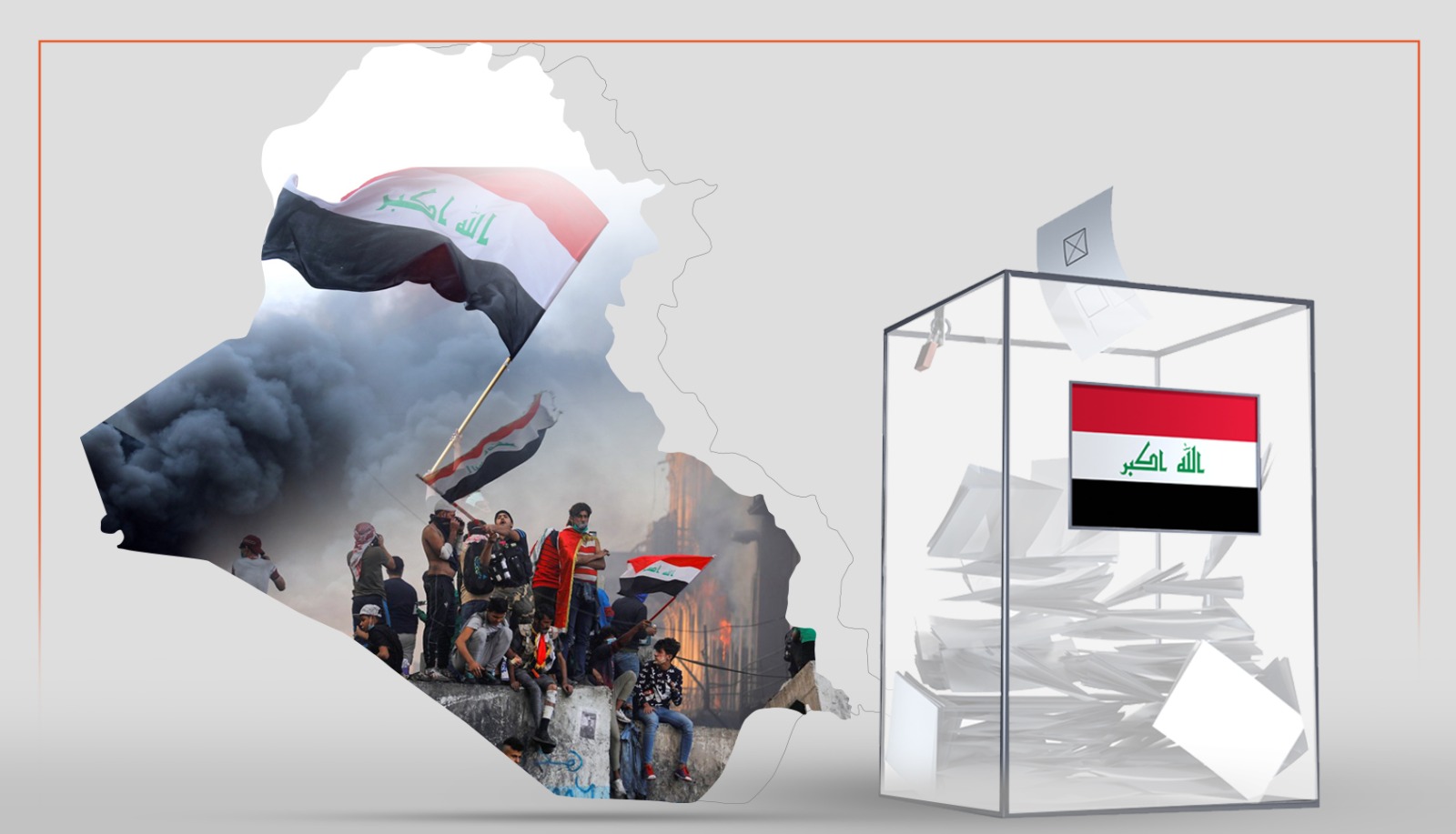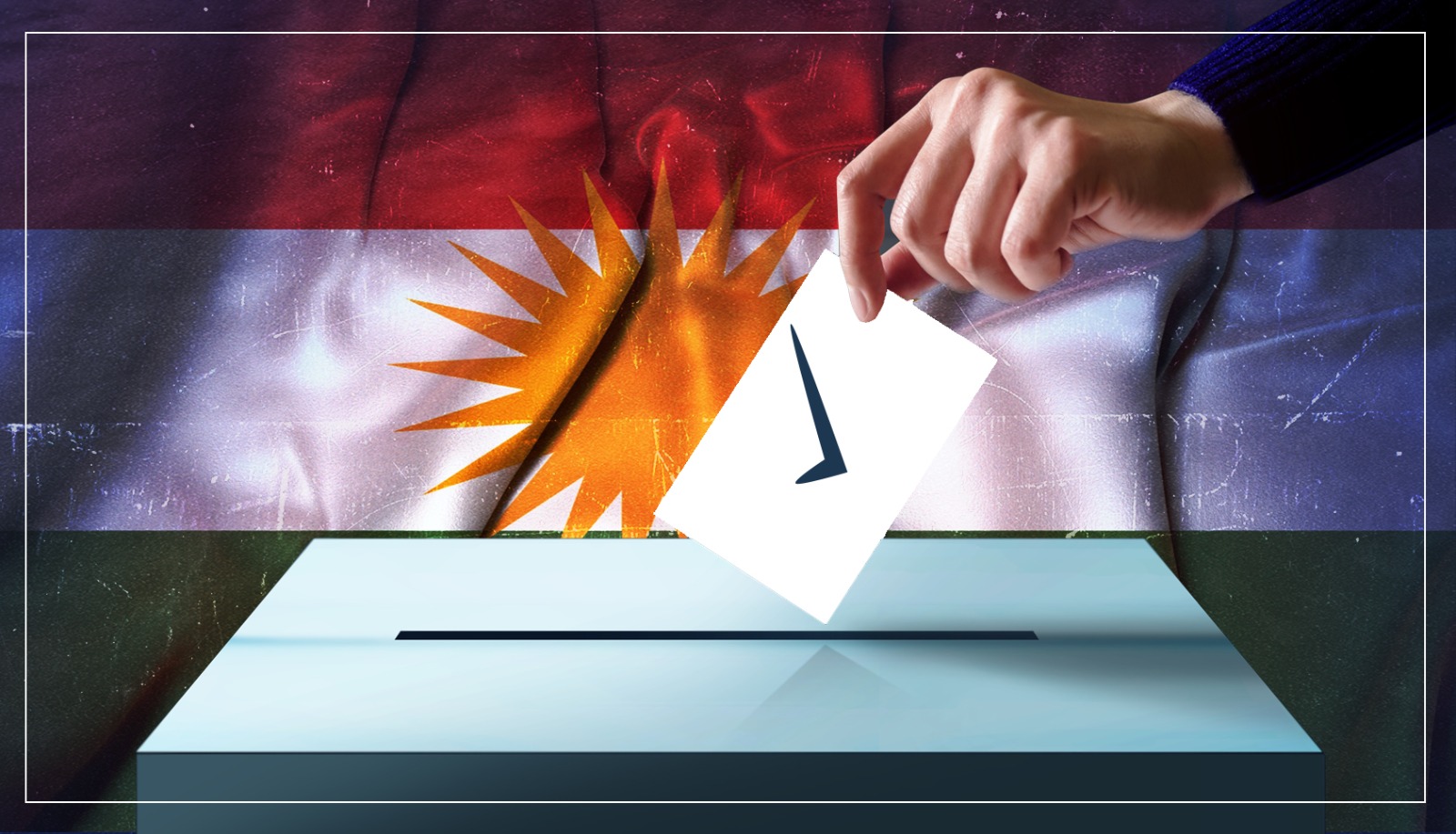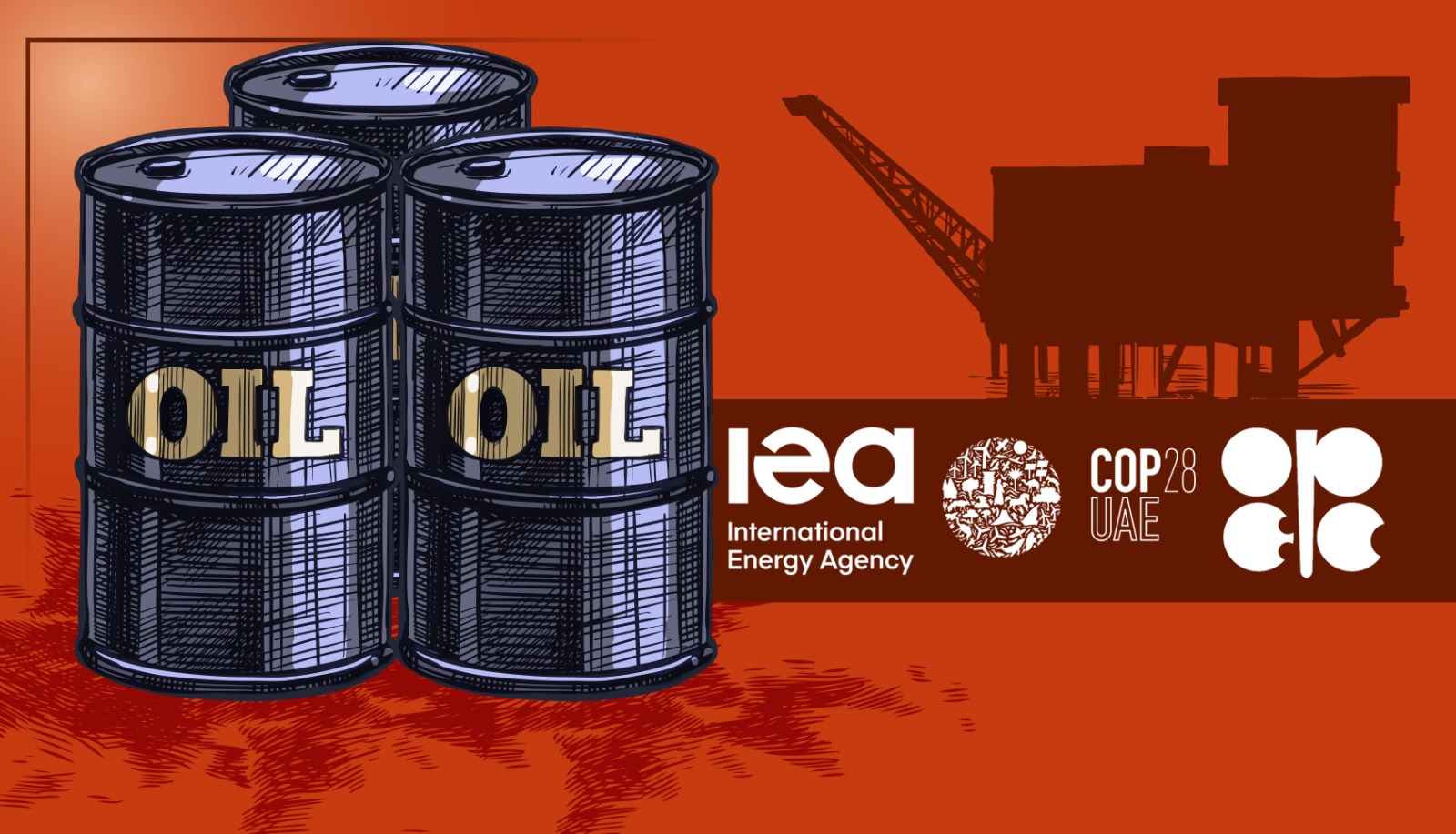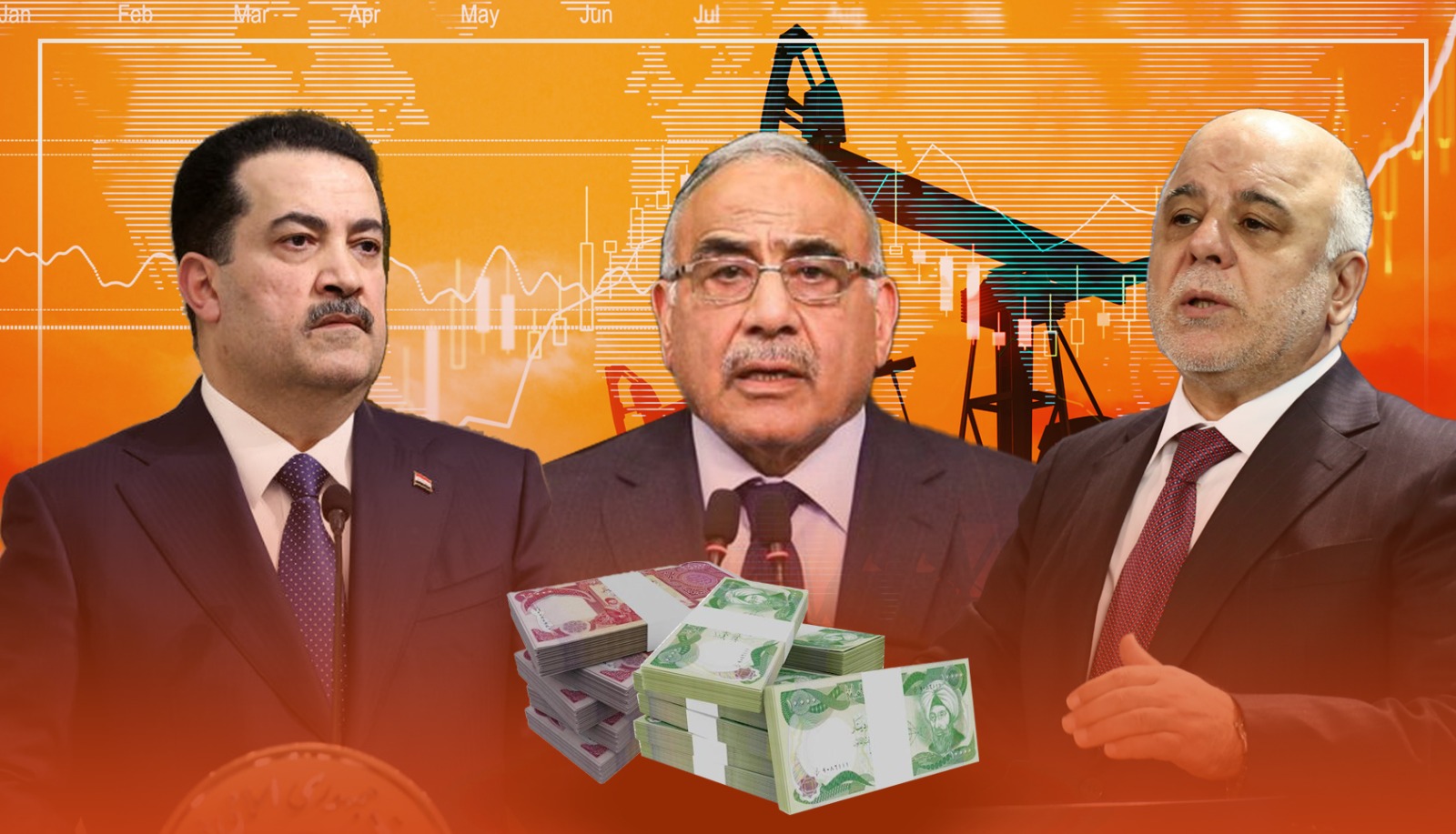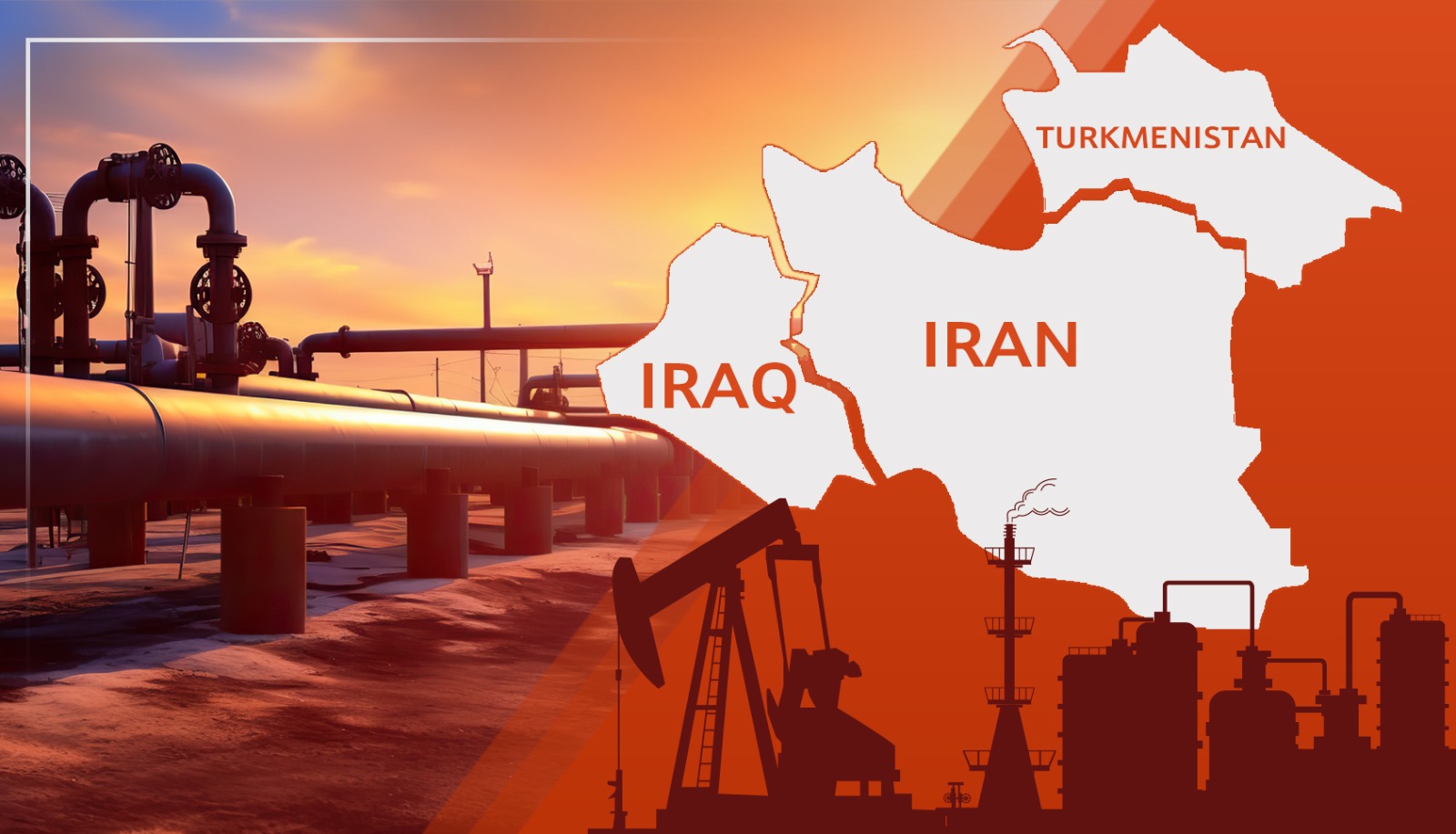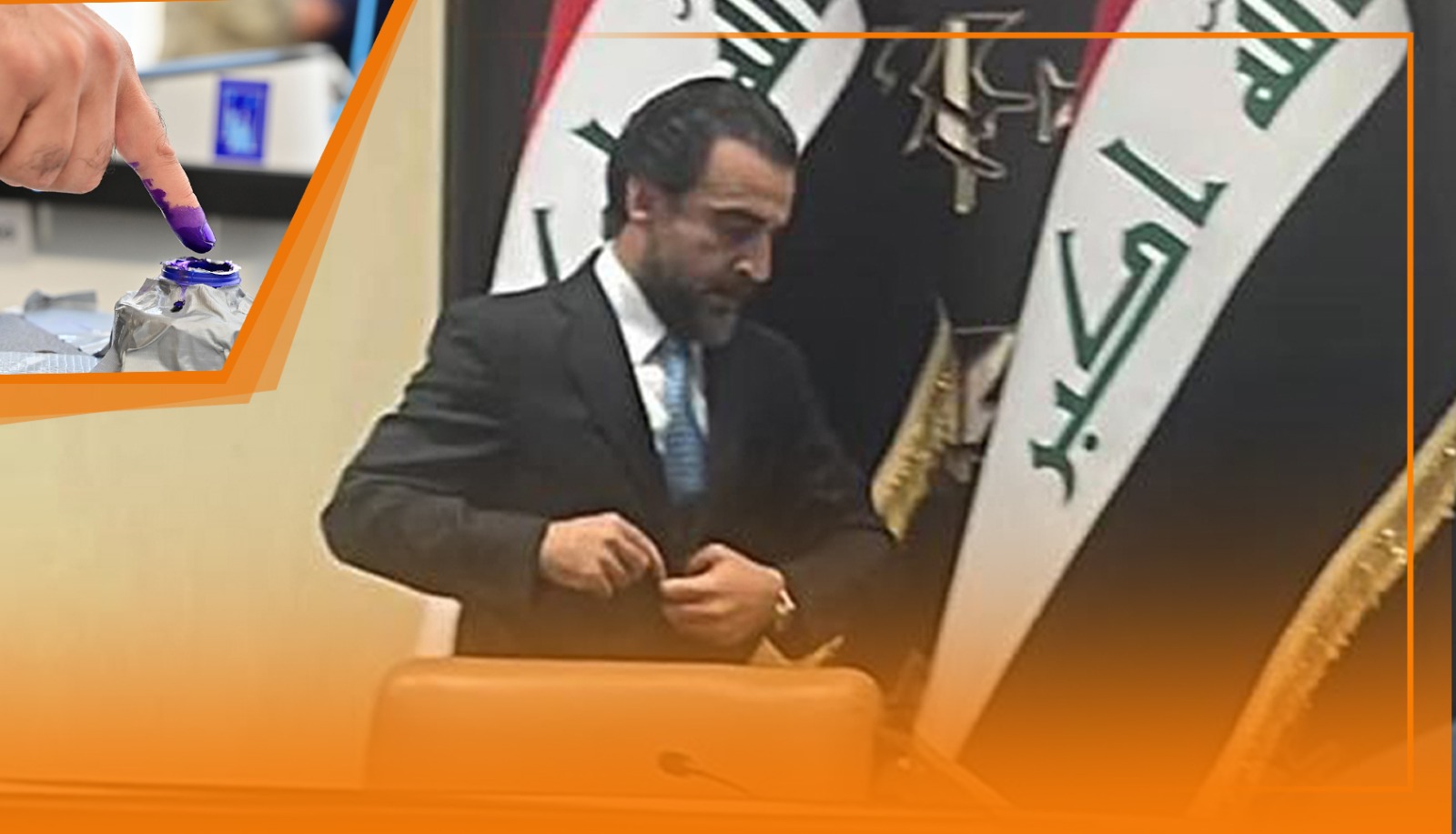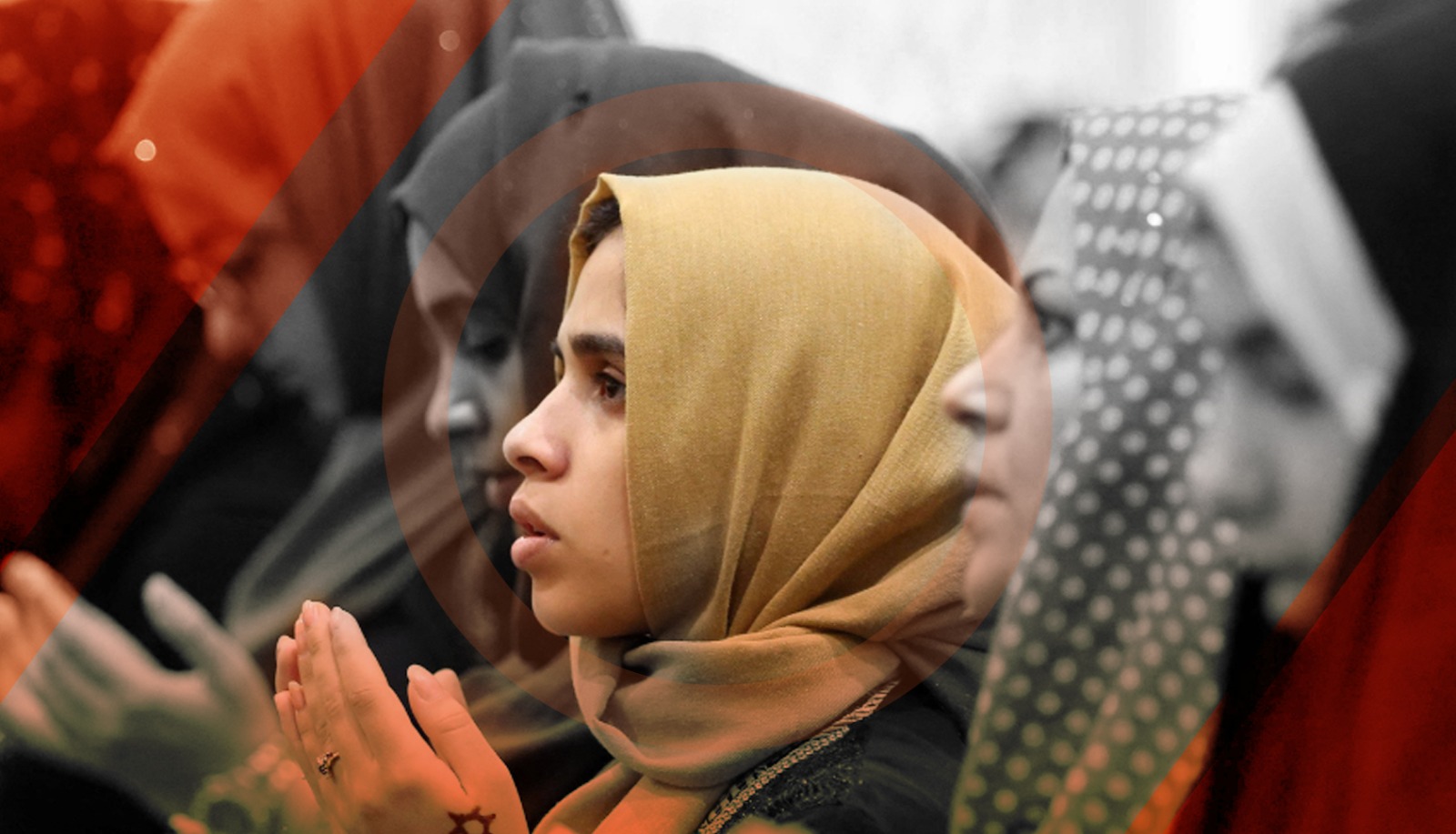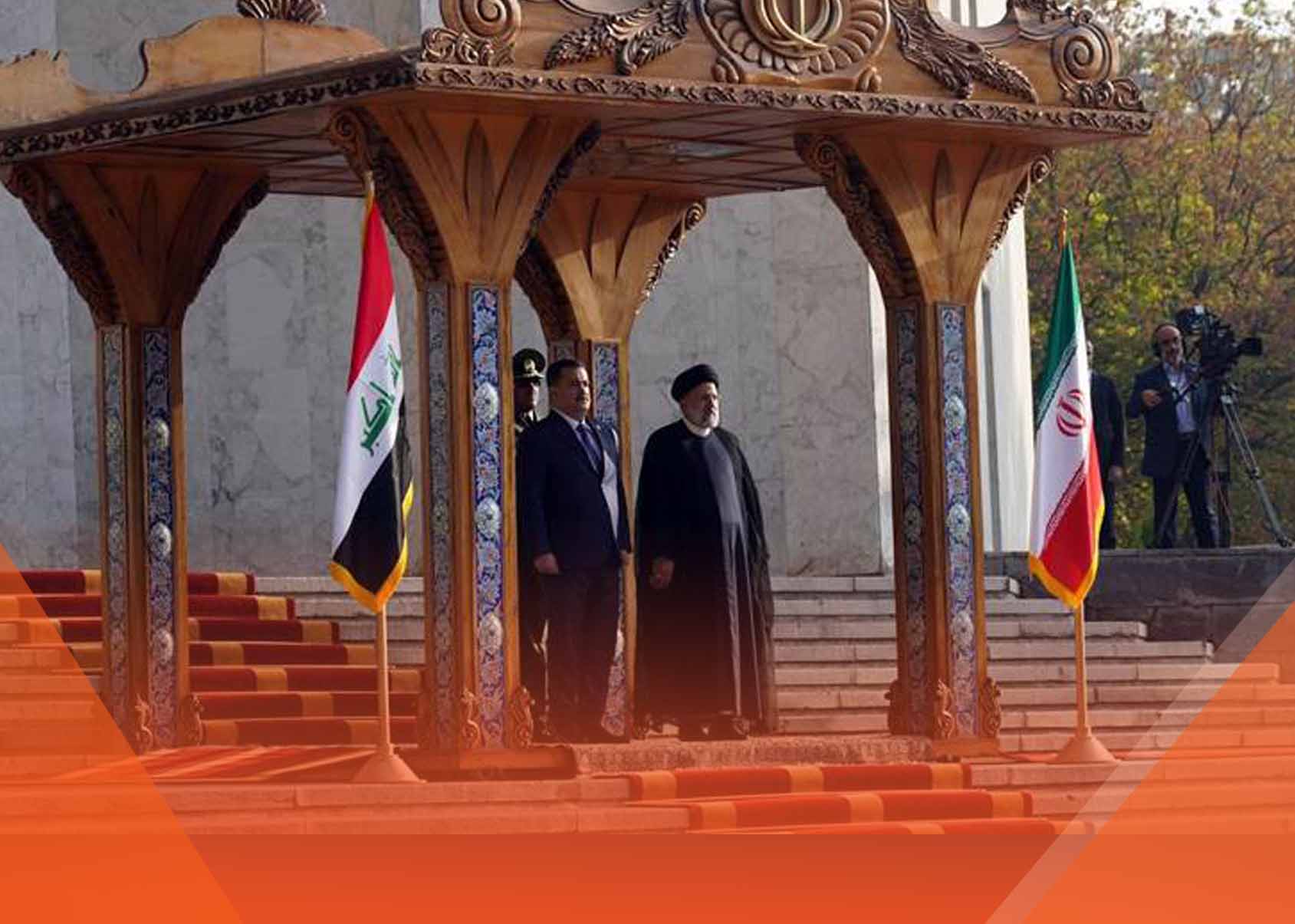Despite SOMO's preliminary and final data on export oil revenues showing a $48 million difference, there remains a staggering billion-dollar gap between the Iraqi Finance Ministry's report and that of SOMO and the Iraqi Oil Ministry. This disparity exceeded $4 billion in 2023.
Indeed, the policy of refraining from responding to the attacks on non-Americans in the Kurdistan Region contrasts with the US humanitarian intervention in the 1990s and the significant role played against ISIS, especially crucial for the Kurds. The current administration's stance prompts the question of whether there is a shift in that policy.
Beyond alleged security concerns, Iran's true objective appears to be destabilizing the Kurdistan Region, impacting key sectors like real estate and energy.
Under heightened scrutiny following attacks in Gaza, Kerman, and the Red Sea, Iran is compelled to address these pressures. The Iranian authorities, seeking justifications for themselves and their regional proxies, engage in a nuanced strategy. While Iran persists in indirect attacks through proxies in Iraq, instances where it directly acknowledges responsibility and releases imagery aim to assert its capability, ownership, and use of ballistic missiles.
Following the visit of the Kurdistan Region's president, a noteworthy development emerged as the Iraqi Council of Ministers opted to allocate a portion of the budget for the Kurdistan Regional Government. While the issue of the budget between Baghdad and the Kurdistan Region may persist, especially amid the ongoing crisis, there exist compelling reasons to explore at least a moderate solution at this juncture.
This issue has broader implications, including US-Iraq relations and US economic sanctions against other countries. Actions and warnings from the Americans alone depreciated the Iraqi dinar against the dollar, despite efforts by the Iraqi government and the central bank to increase the dinar value. Despite adjustments, it still trades above 1,540 dinars per dollar in the markets, highlighting the significant impact of American statements on Iraq's economic situation.
Aside from the potential for demonstrations and tensions, one of the most likely scenarios for the Sadr movement is a significant comeback in the 2025 elections. According to this scenario, the Sadrists, as an opposition, could mobilize a surge of voters to the polls, outpacing their rivals.
The series of declines in voter turnout follows the tradition of the previous four terms, as shown: in the 2005 elections: 76%, in 2010: 62%, in 2014: 61%, in 2018: 44%, and in 2021: 43%.
Expansion of Official and Unofficial Crude Oil Refineries in Iraq and the Kurdistan Region

Iraq plans to increase its refinery capacity to 1.25 million barrels of crude oil in the coming years. Apart from its five official refineries, the Kurdistan Region owns dozens of small and medium-sized unofficial refineries in Erbil, Sulaimani, and Duhok provinces. Collectively, these facilities currently refine over 286,000 barrels of crude oil daily, exporting their products to domestic markets.
Approximately 6.6 million voters participated in the Iraqi provincial council elections, 41% of those eligible to vote. However, with a total of more than 26 million voters, this election and its results represent approximately 25% of all eligible voters. The significance lies not solely in reflecting voter will but in its potential to drive crucial political developments
The upcoming December 18, 2023, provincial elections pose a crucial choice for the new Iraqi civilian forces aligning with the October 2019 demonstrations. It's a dilemma between potential further decline or the chance to secure a popular base and influence within local councils. Success in these elections could pave the way for increased support in the 2025 parliamentary elections, while failure might have the opposite effect.
One Content and Two Interpretations; New Oil and Gas Contracts in Iraq and the Fate of the Contracts in the Kurdistan Region

On February 6, 2024, the Iraqi Oil Ministry is set to unveil the victors of the fifth+ and sixth rounds of oil and gas contracts covering 30 fields. While major firms from the United States and Britain have opted out, Chinese and Russian companies are eager to expand. Notably, the French have reached a historic agreement, and there are calls from the Gulf, particularly Saudi Aramco, for a reevaluation of the contract structures.
As Iraq's provincial council elections draw near, the remaining days carry heightened political and security sensitivity. Even in the absence of major disruptions and with the elections unfolding as scheduled, Iraq is poised for a transformative phase
Over the next four months, four elections will impact the Kurds directly and indirectly. Recent provincial council elections in Iraq exposed internal Shiite conflicts, triggering a political crisis in Anbar and Kirkuk. The Kurdistan parliamentary elections are crucial for institutional legitimacy and shaping the political landscape. Concerns about public participation, domestic competition for leadership mechanisms, and discussions about Iran's next year's elections have left a significant mark. In Turkey, the main focus of the March 2024 elections is expected to be major city municipalities, potentially reshaping the country's political dynamics.
As the world eagerly awaits COP 28, a significant United Nations and UAE summit dedicated to addressing, adapting, and allocating funds for mitigating natural disasters and climate change impacts on Earth. Global markets stand in anticipation of decisions stemming from the postponed meeting of OPEC and OPEC Plus.
On November 14, 2023, the Iraqi Ministry of Finance published a financial report detailing expenditures and revenues over the past nine months. Notably, no dinars were allocated to the Kurdistan Region; instead, funds were sourced from loans and banks. The report indicates total expenditures of 78.25 trillion dinars and combined oil and non-oil revenues of 95.84 trillion dinars, resulting in a surplus of 17.59 trillion dinars compared to expenditures
Turkmenistan Gas Imports: The Crossroads of Sudani's Promise and Iraq's Gas Initiatives

We will delve into the intricacies of importing gas from Turkmenistan, the commitment made by Sudani, and the destiny of multibillion-dollar projects designed to eradicate gas flaring and combustion in the oil and gas fields of Iraq and the Kurdistan Region.
Halbousi's Ouster: Shifting Alliances in Iraq and the Uncertain Provencial Election
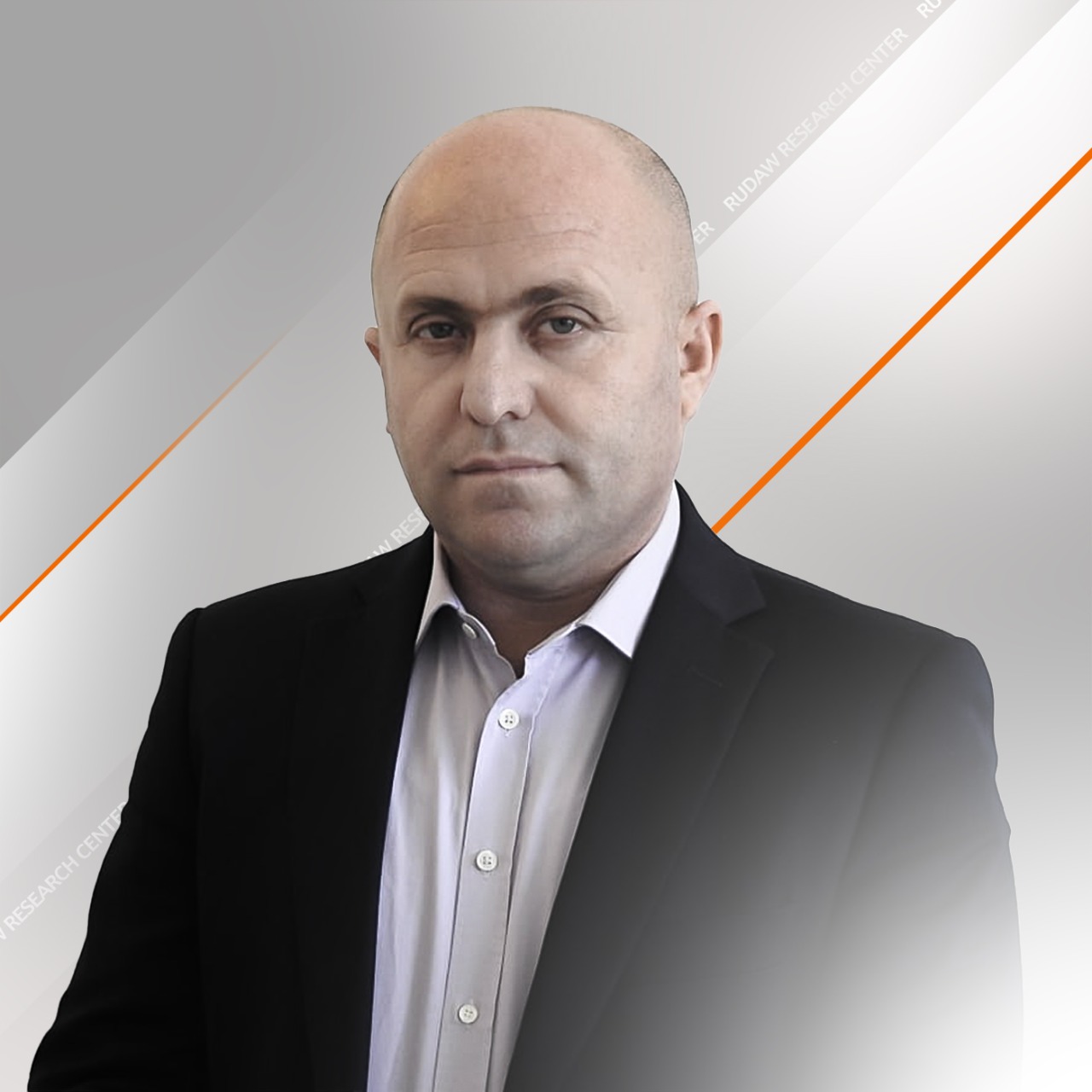
The ousting of Mohammed Halbousi from the parliamentary speaker's position is poised to directly influence the upcoming provincial council elections scheduled for next month.
Within the ongoing research project “The Condition of Life of Women in Iraq and the Kurdistan region”, Dr Ana Cristina Marques analyses the preliminary results focusing on women’s economic empowerment through paid employment.
This visit comes at a particularly sensitive time for the Sudani’s government, which is facing significant pressure. On one hand, the Sadrists have reentered the political arena with heightened enthusiasm, putting pressure on the government over its approach to the war. Following the attack on the Swedish embassy, the Gaza conflict has taken on crucial significance in domestic politics for the Sadrists. They aim to accomplish two goals with this approach: firstly, to take charge of the Palestinian issue and position themselves as heroes within the Shiite world, rather than leaving it to the armed groups of the Iraqi Islamic Resistance.
As per the central bank's data, the gap between the market and central bank exchange rates has traditionally fallen within the range of 10 to 50 dinars per dollar. However, since the start of this year, this difference has significantly widened, often exceeding 100 dinars and occasionally reaching as high as 300 dinars. These disparities starkly contrast with standard “ financial and banking regulations”, which typically consider a range of 1 to 5 thousand Iraqi dinars or 1% to 3% as normal.


